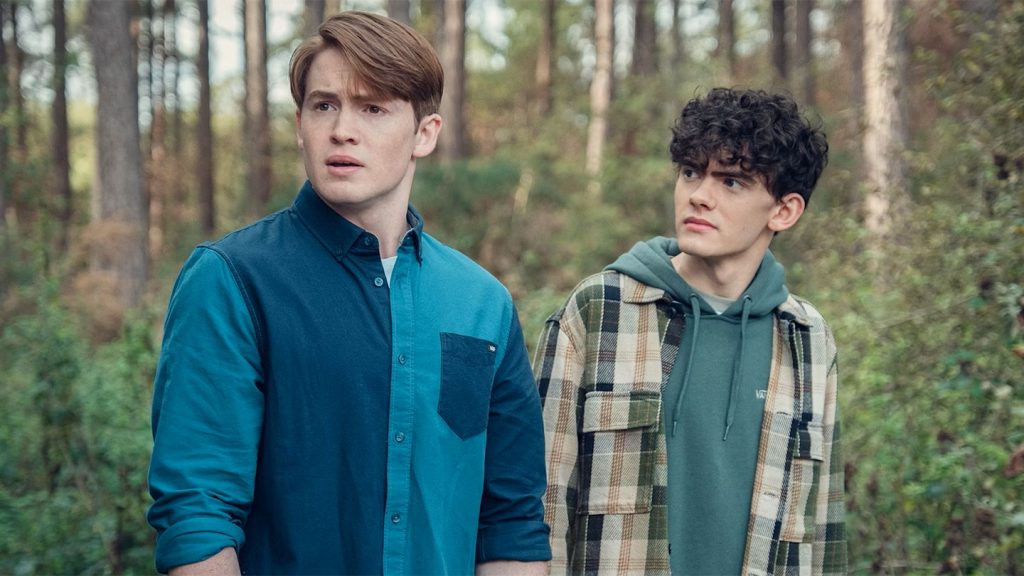With its season three premiere, “Heartstopper” has made it into Netflix’s Global Top 10 shows within a week of its release. The LGBTQ+ coming-of-age show discusses myriad topics that have been the focus of media and entertainment over the past few years.
Continuing where it left off, season three focuses on the out-and-proud teens Nick Nelson (Kit Connor) and Charlie Spring (Joe Locke) and how the two navigate their journey as a new couple. This season tackles more serious issues as it discusses themes of mental health, eating disorders, transphobia and the struggle for self-acceptance.
Based on Alice Oseman’s graphic novel series, the show follows Nick and Charlie’s journey as they fall in love and begin to navigate life both at the fictional Truham Grammar School and the world beyond the confines of their town. The Netflix series is a near-perfect adaptation of the graphic novel series, with Oseman serving as one of the executive producers.
This season focuses on Nick and Charlie’s journey outside their couple identity as they both go through separate experiences as Charlie’s eating disorder and the impact it has had on his mental health makes its way to the forefront.
Rather than simply focusing on romantic relationships this season, such as Tao (William Gao) and Elle’s (Yasmin Finney) relationship and Darcy (Kizzy Edgell) and Tara’s (Corinna Brown) relationship, it focuses on the other bonds that influence the lives of the characters in the show. Familial relationships are at the forefront, particularly with Charlie’s relationship with his parents and his older sister Tori (Jenny Walser).
One of the most pivotal moments from this season is in episode four when Tao takes on the responsibility of making a home video for Charlie so that he doesn’t feel left out, while he lives at an eating disorder clinic, including moments from the months that Charlie is apart from his friends, who all include messages of love and support.
It is a heartbreaking and heartfelt moment to watch, as the tension that existed between Charlie and his friends before he was admitted into the clinic is evident in the loss that they feel with him not being around.
“Heartstopper” has never shied away from discussing heavy real-world topics, and while it does tackle mental health and its impacts, it also brings up transphobia and the journey a person goes through when they are discovering and embracing their sexuality.
Several characters this season go through a journey of self-discovery. Isaac (Tobie Donovan) comes out to his friends as asexual and aromantic. Imogen (Rhea Norwood) confesses to Nick that she has never truly felt attracted to boys, but how she has always felt that it was what she should do, bringing up the often overlooked topic of compulsory heterosexuality, or the idea that heterosexuality is automatically assumed by society.
The topic of transphobia comes to the forefront when Elle accepts to be interviewed by a radio show in episode four after her artwork begins to grow in popularity on social media, only to discover that the interview was only a guise to discuss the topic of her trans identity — something she did not consent to be interviewed about.
The scene is heartbreaking, as the viewer watches Elle struggle to maintain her composure as the interviewer hounds her with questions about how “trans identities are the hot topic of the moment” as her parents and Tao watch from behind the double-sided glass, horrified by the harassment.
The topics of self-discovery and the transition from teenager to adult, no matter what platform it is on, almost always end up discussing one topic in particular — sex. Many of the comedic and heartwarming moments from this season center around the topic of sex, as the characters begin to navigate how they want to approach this milestone in their relationships with their significant others.
“Heartstopper” season three will leave an impact on viewers, as its coming-of-age content regarding romance and personal growth leaves a resounding impression on those who watch it. Its life lessons and approach to LGBTQ+ young adult media can impact future projects approaching the same topic.
Rating: 4.5/5



